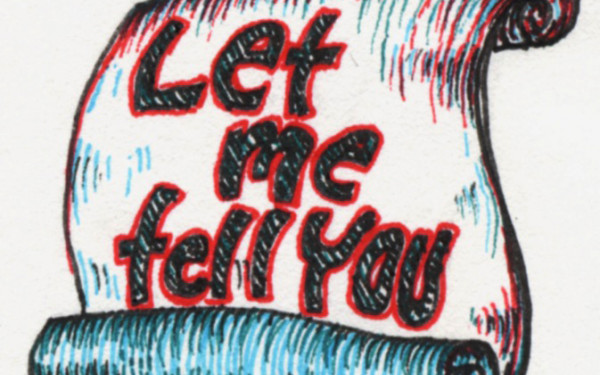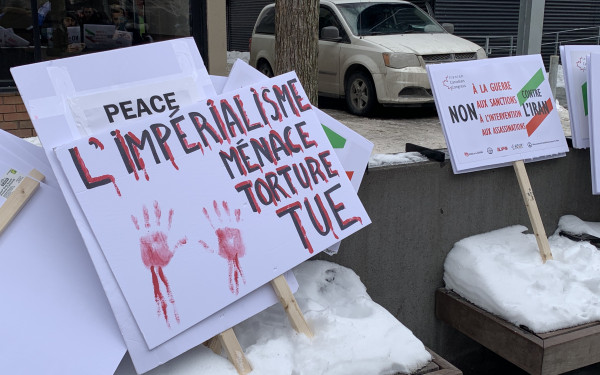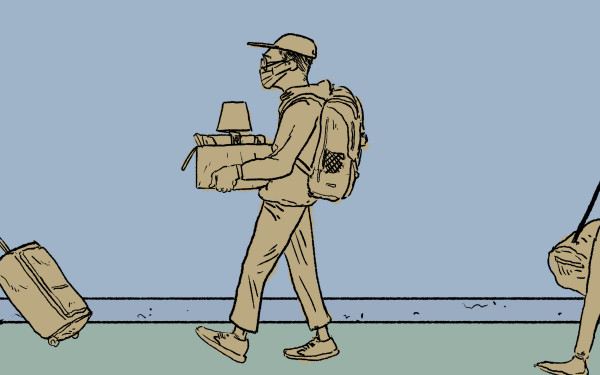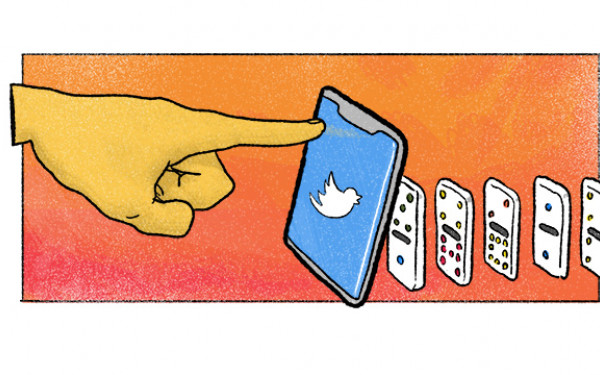Respectability Politics: an Iranian Case Study
New American Visa Restrictions Throw All Racialized People Under the Bus
Last December, American Congress introduced a bill restricting a program that allows certain people to enter the U.S. without a visa.
Nationals of the 38 countries participating in the Visa Waiver Program, who are dual citizens of Iran, Iraq, Syria or Sudan, or who have visited those countries in the past four years will now have to face the bureaucratic hurdles that come with securing a visa to enter the U.S.
The new law, called the Visa Waiver Program Improvement and Terrorist Travel Prevention Act of 2015 or H.R. 158, passed with overwhelming bipartisan support in the aftermath of Paris and San Bernardino attacks in order to “curb terrorism.”
To be honest, the existence of the bill itself didn’t surprise me. The response from the Iranian diaspora did, but maybe I shouldn’t have been surprised. We Iranians have seen ourselves as distinct from the rest of the Middle East and the global south for a long time.
Glorification of Iran’s pre-Islamic period, coupled with the pervasive Aryan myth has given us a sense that we are better than everyone but Westerners themselves—and even then, we are only one step away from achieving full civilization. Mohammad Reza Pahlavi even went as far as saying that Iranians ended up in the Middle East by an “accident of history” during the Indo-European migration.
Since we see everything about non-Western ethnicities as backward while trying to separate ourselves from them, we orientalize other countries over and over again—and our own Iran, too, because as much as we would like to believe that we are white, nobody else actually thinks we are.
“[The Congress is] comparing Iran to Sudan, Iraq, and Syria, which I really don’t get the point of. I don’t see the same danger between these four countries,” said Iranian-French journalist Nilufar Khalessi about the new bill in an article on The Observers.
We throw other people of colour under the bus, those who have been harmed by imperialism just as much as we have been, if not more. As if this bill would have been a good bill if it included Pakistan as a terrorist threat. As if this bill would have been a good bill if it marginalized any racialized group of people any further in a world where we are either murdered by white people or our deaths are ignored by their media. As if the existence of the list of allegedly threat-free countries in the first place is anything but discrimination.
“I have been married 24 years to my loving wife who happens to be a Catholic American of European heritage and have two beautiful American children and two American grandchildren,” wrote an Iranian-American dentist in a California newspaper, the Santa Rosa Press-Democrat, in an effort to prove how American he is. “I never in the past called myself an Iranian-American; just an American.”
How about those of us who want our children to grow up loving their skin, their hair, their food and their language, to not shy away from “where are you really from?” Who knows the journey so many of us had to take to reclaim our Iranian-ness, to decolonize our notions of beauty, to dismantle our self-hatred, to embrace our culture, our religion?
A child born to an Iranian father is automatically considered an Iranian citizen by the Iranian government, even if the child has never visited the country. “Why should a half-Iranian child born abroad be discriminated against?” This argument suggests those of us born in Iran deserve discrimination.
“Does my birth-right citizenship not make me worthy enough to be deemed as an American? According to this bill, the answer is no,” Iranian-American Samira Damavandi wrote in the Huffington Post. By making place of birth a determinant of a human’s worth, we perpetuate the same system that created H.R. 158. We are playing the lottery of birth, the same white supremacy that is devaluing the humanity of all of us.
Ali Abdi, Iranian-American human rights activist called H.R. 158 “un-American.” Well, news flash: America has been creating second-class humans for hundreds of years on the shoulders of African slaves, while simultaneously murdering indigenous peoples to clear the land. If discriminating against certain ethnicities is un-American, then what is the My Lai massacre, or Jim Crow laws, or supporting Israeli Apartheid, or the war in Korea, Vietnam, Iraq? America was built on genocide and survives on genocide. When are we going to realize that the American dream was never meant for people like us?
“Our passports [as Iranian-Americans] will be unworthy of reaping the benefits granted to us as American citizens and the law will justify treating us as inferior citizens,” Damavandi wrote.
How about those of us with an Iranian place of birth, with an Iranian accent, that are treated like second-class citizen, regardless of the number of Western passports we own? And how about those of us in Iran, those who were never a national of a foreign country in the first place?
Iranian citizens were never deemed human enough to be able to travel without extensive interrogation, dehumanization and the literal violence that is the process of getting a visa, let alone enjoy traveling with the visa on their “Axis of Evil” passport. Those of us in the diaspora are so in love with the West that we forget it is because of the crimes of the West that we are here. We are so attracted to becoming our oppressor that we forget personal liberation is contingent on liberation for all people of colour.
To the imperialist, we were always the same worthless body. Why aren’t we outraged at the root of the problem that is the existence of a list of “safe” countries to begin with? Why aren’t we outraged that these countries that exclude us from their visa waiver list were the same ones that stole our resources, deposed our democratic governments, and created terrorism in the first place?
The hard thing with respectability politics is that you can never blame people as individuals. But, need I remind us, that we Iranians have never been and will never be better than Pakistanis, Iraqis or Sudanese. By holding on to this belief, we perpetuate the same logic that created H.R. 158—that some lives are more valuable than others. We are all trying to survive, but to survive we can’t undermine each other’s humanity.
Respectability doesn’t save, it bites back, and we have a century of Iranian presence in the West to learn that from. Racialized bodies can do everything right in the West, but when “right” is defined by them and not us, our bodies will never be safe.

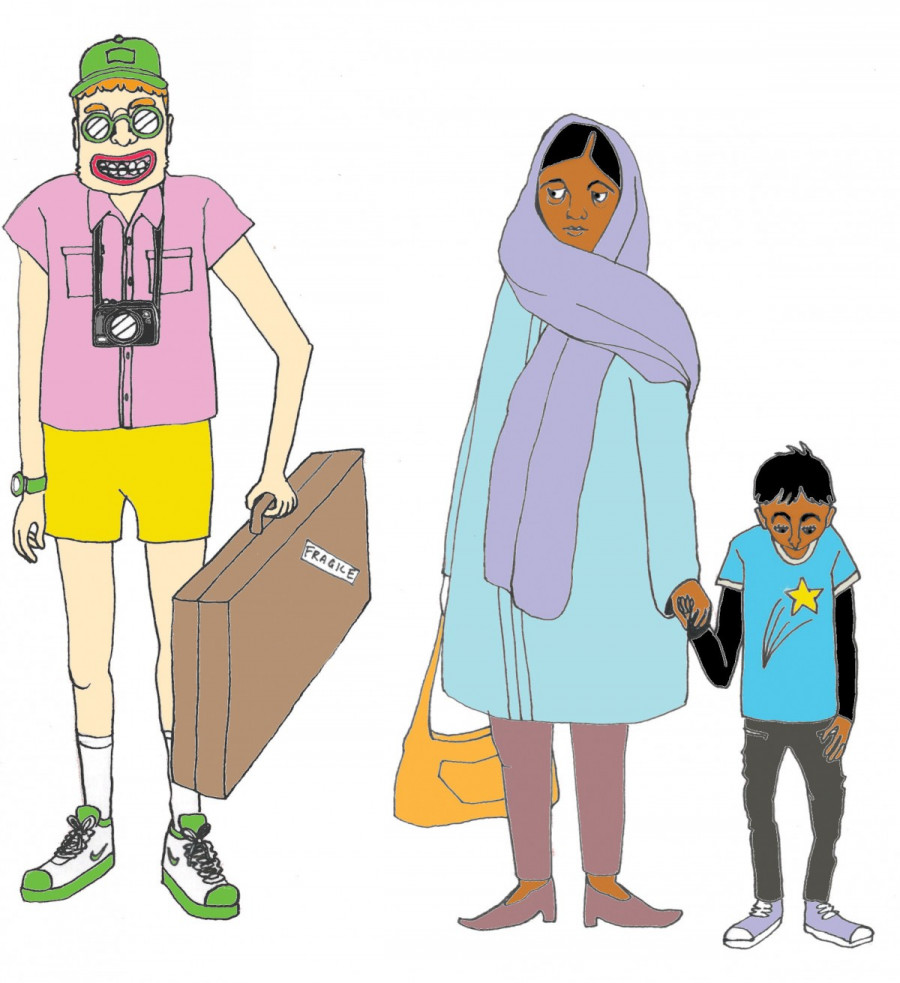
_600_832_s.png)

